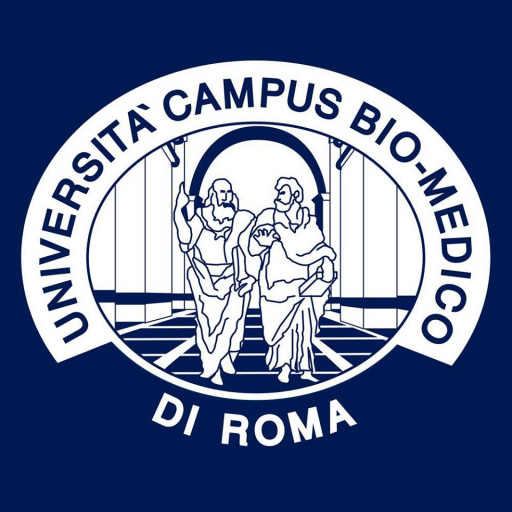Photos of university / #kansasstateuniversity
The Food Safety and Defense program at Kansas State University offers students a comprehensive education focused on the principles and practices essential for ensuring the safety and security of the food supply chain. Designed for individuals interested in addressing challenges related to foodborne illnesses, contamination, and malicious threats, this program combines coursework, practical training, and research opportunities to prepare graduates for careers in government agencies, private industry, and research institutions. Students will explore topics such as microbiology, HACCP (Hazard Analysis and Critical Control Points), food quality assurance, regulatory frameworks, and crisis management. Emphasizing interdisciplinary approaches, the program integrates science, technology, policy, and management strategies to develop a robust understanding of food safety systems. Graduates will be equipped with the skills necessary to detect, prevent, and respond to food safety issues, ensuring compliance with national and international standards. The curriculum also includes hands-on laboratory work, internships, and collaborations with industry partners to foster practical expertise. With a faculty renowned for research and leadership in food safety and defense, students will have access to cutting-edge knowledge and innovations in the field. This program not only aims to enhance technical competencies but also encourages critical thinking, problem-solving, and leadership qualities necessary to advance food safety practices globally. Graduates of the Food Safety and Defense program will be well-prepared to contribute effectively to protecting public health, supporting food security, and ensuring the integrity of the food supply chain across various sectors.
The Food Safety and Defense program at Kansas State University is designed to prepare students for critical roles in protecting the nation's food supply from contamination, tampering, and other security threats. This comprehensive curriculum combines theoretical knowledge with practical skills, equipping graduates to address complex challenges in food safety management, regulatory compliance, and crisis response. Students will explore core topics such as microbiology, hazard analysis and critical control points (HACCP), food defense strategies, and supply chain security. The program emphasizes multidisciplinary approaches, integrating principles from environmental health, food science, law, and public policy to develop a holistic understanding of food safety issues.
Throughout the coursework, students will engage in hands-on training through laboratory exercises, case studies, and simulated emergency scenarios. The curriculum also includes modules on emerging threats such as bioterrorism and cybersecurity in food systems, preparing students to anticipate and mitigate potential risks. In addition to technical competence, the program fosters skills in risk communication, regulatory frameworks, and leadership, ensuring graduates are well-equipped to work effectively with government agencies, industry stakeholders, and the public.
Kansas State University's Food Safety and Defense program benefits from strong industry partnerships and state-of-the-art facilities, providing students with access to current technologies and real-world experiences. Graduates of this program will be prepared for careers in government agencies, food manufacturing and processing companies, consulting firms, and non-profit organizations dedicated to food security. They will also be qualified for advanced roles in research, policy development, and regulatory compliance.
The program underscores the importance of continuous learning and adaptation in a rapidly evolving field. Students are encouraged to participate in internships, seminars, and professional development opportunities that enhance their understanding of global food safety standards and best practices. With a focus on innovation, ethics, and sustainability, the Food Safety and Defense program aims to develop industry leaders committed to ensuring a safe, secure, and resilient food supply chain for communities worldwide.
The Food Safety and Defense program at Kansas State University is designed to prepare students for careers in safeguarding the food supply chain from biological, chemical, and physical hazards. The program emphasizes a comprehensive understanding of microbiology, food processing, contamination control, quality assurance, and risk management. Students are expected to complete core coursework in food safety principles, microbiology, food science, and public health, alongside specialized courses in food defense strategies, crisis management, and regulatory policies. Practical training, including laboratory work and internships with industry partners and governmental agencies, is integral to the curriculum to ensure students gain hands-on experience in real-world environments. The program also incorporates coursework in data analysis, food safety auditing, and emergency response protocols, equipping graduates with skills to identify vulnerabilities in food systems and implement effective prevention measures. Students are encouraged to participate in research projects related to pathogen detection techniques, vaccine development, or supply chain security. To graduate, students must earn a minimum number of credit hours defined by the university, comply with academic integrity policies, and complete a capstone project or thesis demonstrating their competency in food safety and defense issues. The program aims to produce graduates who can effectively contribute to food safety management in industries such as agriculture, manufacturing, retail, and public health agencies. Additionally, students have access to state-of-the-art laboratories, specialized equipment, and expert faculty members involved in cutting-edge research and policy development. Upon completion, graduates are prepared for careers as food safety specialists, regulatory inspectors, quality assurance managers, or further study in graduate or professional programs. The program continuously updates its curriculum to reflect evolving scientific understanding and regulatory requirements in food safety and defense, ensuring that students are well-equipped to address contemporary challenges in the global food system.
Financing studies at Kansas State University for the Food Safety and Defense program typically involve a combination of federal aid, scholarships, grants, assistantships, loans, and university-specific funding options. Undergraduate students may qualify for federal and state financial aid programs such as the Free Application for Federal Student Aid (FAFSA), which can provide grants and loans to those demonstrating financial need. Kansas State University offers merit-based scholarships, scholarships for students pursuing food science, and departmental awards that can help offset tuition costs. Graduate students pursuing advanced degrees in Food Safety and Defense are often eligible for assistantship positions, which provide a stipend and tuition waivers in exchange for research or teaching duties. These assistantships are competitive and awarded based on academic performance and research potential. Additionally, students may explore external scholarships from industry organizations, food safety foundations, and private donors dedicated to advancing food security and safety initiatives. Financial planning should include evaluating eligibility for federal loans, such as Stafford and Perkins loans, and exploring work-study opportunities available through the university. International students, in particular, should consider scholarship programs, assistantships, and potential sponsorship options. The total cost of the program varies depending on residency status, course load, and additional fees, with comprehensive estimates available on the Kansas State University financial aid webpage. It is advisable for prospective students to fill out the FAFSA early and contact the university’s financial aid office for personalized assistance and guidance on funding opportunities. Many students finance their studies through a combination of these options to make the pursuit of a degree in Food Safety and Defense at Kansas State University accessible and affordable.
The Food Safety and Defense program at Kansas State University is designed to prepare students for careers in ensuring the safety, security, and integrity of the food supply chain. This specialized curriculum combines coursework in microbiology, food processing, public health, and risk assessment to equip graduates with comprehensive knowledge of foodborne pathogens, contamination prevention, and critical control points. Students are introduced to the principles of food defense, which involves protecting the food supply from intentional adulteration and sabotage, as well as traditional food safety practices to prevent accidental contamination. The program emphasizes hands-on training through laboratory exercises, research projects, and potential internships with food industry partners and regulatory agencies such as the USDA and FDA. Graduates of the program often pursue careers in quality assurance, food safety auditing, regulatory compliance, or research and development within food manufacturing companies, governmental agencies, or consulting firms. The curriculum also covers emerging issues such as biotechnology, global food security, and emergency response planning related to food safety incidents. Kansas State University supports students through access to state-of-the-art laboratories, experienced faculty with expertise in microbiology and food science, and partnerships with industry stakeholders committed to innovation and safety standards. The program aims to develop professionals who can identify vulnerabilities in the food production process, implement effective safety protocols, and respond effectively to food safety crises. Course offerings are regularly updated to reflect current regulatory requirements and technological advancements, ensuring that graduates are prepared for the evolving landscape of food safety and defense. Overall, the Food Safety and Defense program provides a rigorous and comprehensive education that combines theoretical understanding with practical application, fulfilling the needs of a growing industry committed to protecting public health worldwide.










